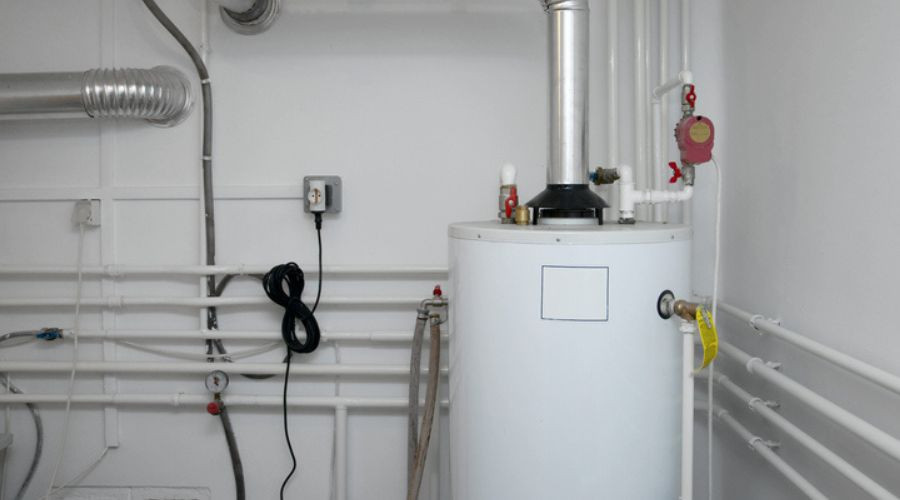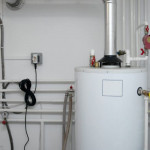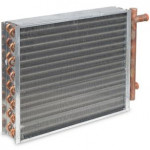Uncovering Boiler Maintenance Secrets: 3 Surprising Facts
Home boilers are essential for any household, providing heat and hot water all year. However, many homeowners may be unaware of how their boilers work or how to maintain them properly. This blog aims to educate readers on the fundamentals of home boilers and provide valuable tips for keeping them in good working order.
Understanding How Your Boiler Heats Water
 Most modern boilers use a heat exchanger to heat water, which then flows to the rest of the house through a system of pipes. The heat exchanger is a device that transfers heat from one fluid to another without the fluids coming into direct contact. A boiler's heat exchanger typically uses gas or oil to heat the water that runs through the pipes, providing heat and hot water to the rest of the house. This method of heating is efficient and allows for precise temperature control. It's important to note that the boiler itself does not "boil" the water, as the water temperature is kept at a constant level that is safe for use. The heat exchanger plays a crucial role in the operation of the boiler by effectively and safely transferring heat to the water. Regular heat exchanger maintenance, including cleaning and inspections, can help ensure that the boiler continues to operate efficiently and safely.
Most modern boilers use a heat exchanger to heat water, which then flows to the rest of the house through a system of pipes. The heat exchanger is a device that transfers heat from one fluid to another without the fluids coming into direct contact. A boiler's heat exchanger typically uses gas or oil to heat the water that runs through the pipes, providing heat and hot water to the rest of the house. This method of heating is efficient and allows for precise temperature control. It's important to note that the boiler itself does not "boil" the water, as the water temperature is kept at a constant level that is safe for use. The heat exchanger plays a crucial role in the operation of the boiler by effectively and safely transferring heat to the water. Regular heat exchanger maintenance, including cleaning and inspections, can help ensure that the boiler continues to operate efficiently and safely.
Eco-Friendly Heating: The Benefits of Using a Boiler in Your Home
 Boilers are closed systems, meaning they repeatedly recycle the same water. This is an eco-friendly feature, as it reduces water usage and waste. Additionally, installing an energy-efficient boiler can significantly reduce a household's carbon footprint and energy costs. Energy-efficient boilers use advanced technology to optimize performance and reduce fuel consumption, significantly saving energy bills.
Boilers are closed systems, meaning they repeatedly recycle the same water. This is an eco-friendly feature, as it reduces water usage and waste. Additionally, installing an energy-efficient boiler can significantly reduce a household's carbon footprint and energy costs. Energy-efficient boilers use advanced technology to optimize performance and reduce fuel consumption, significantly saving energy bills.
Furthermore, new models of boilers are designed to be more energy efficient and are equipped with advanced features that allow homeowners to monitor and control the heating system. This includes managing the temperature, scheduling heating times, and monitoring energy usage.
Investing in an energy-efficient boiler helps the environment and provides long-term cost savings for homeowners. It is an eco-friendly and intelligent decision that can help to lower energy consumption, reduce the carbon footprint and save money on energy bills.
Efficiency Loss: How Low Pressure Can Impact Your Boiler's Performance
A boiler's operation is dependent on a specific level of pressure. If the pressure falls too low, it can significantly impact the boiler's performance. A boiler may lose pressure for various reasons, including system leaks, a malfunctioning pressure relief valve, or a lack of maintenance.
When a boiler loses pressure, it loses efficiency, so it has to work harder to heat the same amount of water. Higher energy bills result as more fuel is required to maintain the desired temperature. Furthermore, low pressure can cause damage to the boiler over time, reducing its lifespan.
Homeowners can avoid low pressure by regularly checking the pressure gauge, ensuring that the pressure relief valve is working correctly, and scheduling regular maintenance to identify and repair any leaks in the system. Homeowners can help to ensure that their boilers continue to operate efficiently and effectively by keeping an eye on the pressure and addressing any issues as soon as they arise.
About City Plumbing
Whether to fix a problem caused by a previous contractor or to avoid future issues, City Plumbing has homeowners covered! They have three full-time licensed master plumbers and three licensed HVAC technicians on staff to ensure that every job is done safely, properly, and following code. Call City Plumbing for all plumbing services in Philadelphia, PA.

































